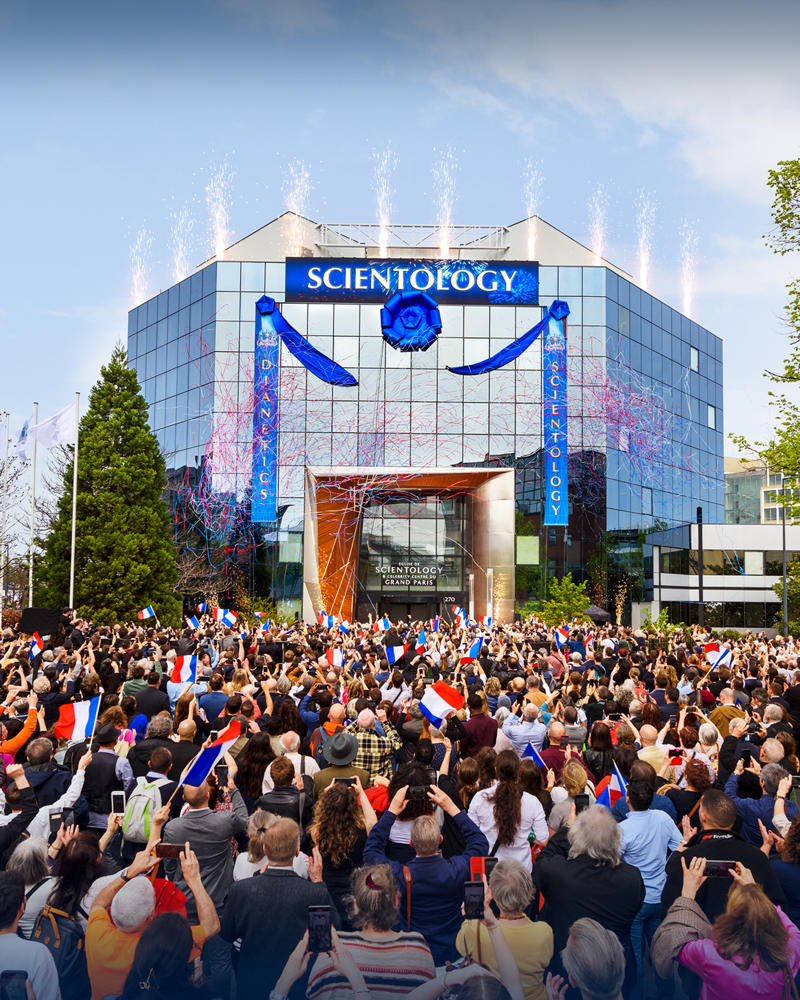The History of Scientology: From Its Starting to Existing Day
The History of Scientology: From Its Starting to Existing Day
Blog Article
Debunking Myths: Dividing Fact From Fiction About Scientology

Origins of Scientology
The origins of Scientology trace back to the mid-20th century when L. Ron Hubbard, a sci-fi writer, established the idea system in the 1950s. Hubbard's growth of Scientology came from his earlier self-help system called Dianetics, which he presented in the 1940s - Scientology. The change from Dianetics to Scientology noted a shift towards an extra comprehensive religious viewpoint that integrated facets of psychology, Eastern spiritual practices, and Hubbard's own theories on human existence
Hubbard's expedition right into the human mind and spirit led to the creation of Scientology as a religious beliefs focused around the principle of spiritual knowledge and self-improvement via a process called auditing. Auditing, a form of spiritual counseling, aims to assist people overcome mental and psychological obstacles, called engrams, that hinder personal development and recognition.
As Hubbard's trainings gained popularity, Scientology developed into a worldwide motion with a substantial following. Despite controversies and criticisms surrounding its methods and ideas, Scientology remains to bring in fans seeking spiritual satisfaction and personal development.
Core Beliefs and Practices

An additional basic element of Scientology is the principle of the Thetan, the spiritual significance of an individual that transcends the physique. Fans aim to understand and enhance their link to the Thetan through various methods such as study training courses and purification rituals.
The Church of Scientology additionally positions a strong emphasis on the importance of individual obligation and the belief that individuals have the power to form their own destinies. With adherence to honest guidelines and the search of self-improvement, experts of Scientology make every effort to attain better degrees of happiness, success, and spiritual satisfaction.
Debates and Criticisms
In the middle of Scientology's core beliefs and methods exists a landscape marked by conflicts and criticisms that have actually sparked intense discussion and examination. In addition, Scientology's status as a tax-exempt spiritual organization in some nations has actually been a point of contention, with doubters arguing that its techniques are more similar to a business than a religious beliefs.
An additional area of conflict borders the Church's treatment of movie critics and skeptics. Reports have actually arised of harassment, intimidation, and legal hazards directed at those who talk out versus Scientology. This has elevated issues company website regarding free speech and the organization's dedication to transparency and responsibility.
While Scientology has actually vehemently denied most of these claims, the debates and criticisms surrounding the Church continue to fuel public hesitation and analysis.
Scientology's Impact in Society
With its existence in different fields of society, Scientology's influence can be observed in both obvious and refined means, forming perceptions and interactions. In the world of education, the Church of Scientology has faced scrutiny for its best site efforts to introduce its mentors into institutions through programs like "Applied Scholastics." Movie critics suggest that such efforts blur the lines between church and state, potentially impacting the academic experiences of trainees. Moreover, Scientology's impact encompasses the realm of psychological wellness, where its sights on psychiatry and psychology have stimulated arguments within the clinical community. The church's anti-psychiatry stance has caused skepticism and concerns pertaining to the effectiveness of psychological wellness treatments. In the world of entertainment, Scientology's association with top-level stars has brought attention to the religious beliefs, both positively and negatively. The participation of well-known numbers in Scientology has, in many cases, offered to promote the religion, while in others, it has actually attracted objection and increased concerns concerning the church's practices and beliefs.
Debunking Common Misconceptions
What misconceptions about Scientology are frequently held and how can they be unmasked? One usual false impression about Scientology is that it is a cult. Nevertheless, the Church of Scientology is legitimately recognized as a religious beliefs in several countries, including the United States, find more information where it has tax-exempt standing. Like various other religions, Scientology offers spiritual support and techniques for its members.
One more mistaken belief is that Scientology compels its participants to reduce connections with their families. In truth, the church emphasizes the significance of household connections and urges participants to keep healthy and balanced links with their enjoyed ones.

Final Thought
Finally, it is very important to different reality from fiction when reviewing Scientology. By analyzing its beginnings, core beliefs, debates, and influence in society, we can expose common misunderstandings surrounding this religion. It is essential to approach the topic with a unbiased and essential mindset in order to understand Scientology properly and right.
Rooted in a structure of spiritual knowledge and personal growth, Scientology's core beliefs and practices incorporate a varied variety of principles and rituals. Central to Scientology is the idea that people are immortal spiritual beings who have actually forgotten their true nature. The participation of popular figures in Scientology has, in some cases, offered to popularize the religion, while in others, it has actually drawn criticism and elevated inquiries regarding the church's ideas and practices.
The Church of Scientology is legitimately identified as a religious beliefs in many nations, including the United States, where it has tax-exempt standing. Like other religious beliefs, Scientology gives spiritual support and methods for its members.
Report this page